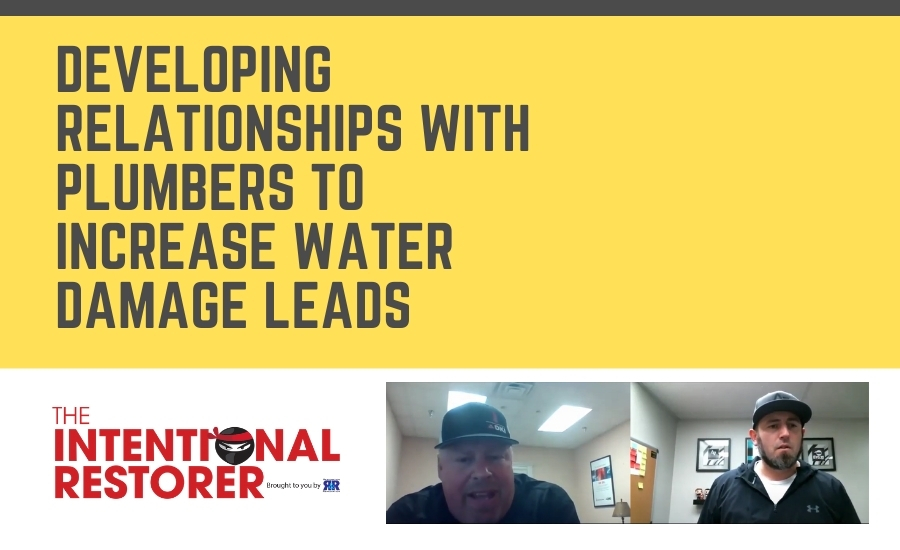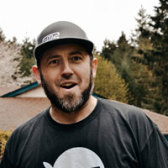Kevin Hussey has tried it all when it comes to working with plumbers to acquire more water damage mitigation work. He runs a successful property restoration company out of Baton Rouge, which is currently a part of the DKI Network. Mr. Hussey joined The DYOJO Podcast for a candid conversation regarding the ups and downs of his journey building an organization that provides restoration services for property insurance claims.
He was brought to the capital of Louisiana from the slopes of Colorado when Hurricane Katrina struck in 2005. In the aftermath of was, at that time, the costliest tropical cyclone on record, he was flooded (bad pun) with work but as things returned to “normal” he has since had to learn to build an independent thriving local business. By this we mean that his company has opted not to pursue or perform preferred vendor (aka program) work which is common within the industry.
Program work is a system where contractors sign up to be on various vendor lists with third party administrators (TPAs) who represent various insurance carriers. As we discuss in Be Intentional: Estimating, many contractors utilize program work as a means to acquire leads “through the system”; as opposed to being independent (of the system). “If your company does “program” work, this means that there will be additional layers of review that you will be subject to as an estimator. It also means that your organization has made certain concessions that you will not be able to battle against.” Preferred vendor work is typically higher quantity of projects, potentially leading to higher revenue volume, but may be more challenging to produce the profit margins that many seek.
One key to his current, and future, growth has been using trial and error to crack the code of working with local plumbers. Plumbers are on the front lines of responding to a variety of water based home and business damages and therefore can be a great source of leads for companies looking to provide services for extraction or structural drying. Kevin shares many of his lessons learned, some the hard way, of building relationships with local plumbing companies.
These lessons for developing relationships with plumber to increase water damage leads include:
- Starting your own plumbing company
- Paying too much for plumber leads
- Providing value to your referral partners
- Free lunch Fridays and quarterly giveaways
Kevin started his own plumbing company, which seemed like a great idea at the time in the pursuit of generating their own leads. Executing this plan soon revealed many holes. Kevin found that running a plumbing company split his focus and his resources, leading to operating both revenue streams at less than optimum capacity. He also alienated many of the plumbers that he had worked so hard to build relationships with. After two years, they decided to sell off the plumbing effort and focus more effectively on their sweet spot in property restoration.
While they worked to rebuild trust and relationships, Kevin uncovered some great ideas for engagement with local plumbers. He has gone through the process of trying a bit of everything, hoping something would stick, to now being more targeted and throwing darts at their goals. Kevin warns against paying too much for leads, the cost has to make sense in the overall revenue and profitability of the work being generated. Business owners and managers need to work to identify your ideal partners, as Kevin says, "The ones only doing new construction likely aren't the best fit."
His team has identified plumber referrals as a key to doubling their revenue and so they are working to double their lead volume from last year. Adding value to your client is always a good source of enriching existing relationships, so Kevin's team is looking into being able to offer continuing education (CE) courses for plumbers through their existing water damage training facility. By using an existing resource and adapting it to align with their goals, they can optimize their efforts and target their expenditures.
The United Fire and Water team assembles baggies with inexpensive moisture meters, a drying log, and basic instructions, all branded with their company logo and information. By doing so, their plumbing partners have a better means of serving their client as well as an understanding of when to refer a project to their mitigation company for additional drying. Kevin's team hosts a weekly Free Lunch Friday, where they feed their partners and hand out lead fees. They are also doing quarterly drawings for big ticket items such as a four wheeler to encourage engagement.
Modern restorers have to be creative and always adapting to the market, especially if the majority of your work comes through independent sources. As Kevin says, "You're always paying for something," but like Mr. Hussey, you want to understand your numbers and spend your money where it counts. Intentional restoration professionals are always asking whether their efforts are producing the outcomes that they are seeking. Developing your name as an organization who partners with local professionals will pay long term dividends and help you distinguish yourself from others who may try to make a move and buy you out of your relationships.
Connecting with fellow restoration owners, managers, and professionals to learn from their mistakes will help you shorten your DANG learning curve. You can listen to the full conversation with Kevin Hussey, which includes a discussion about pairing an innovator with an integrator, via The DYOJO Podcast Episode 44.
Video, podcast, and content are produced by Jon Isaacson/The Dyojo.


